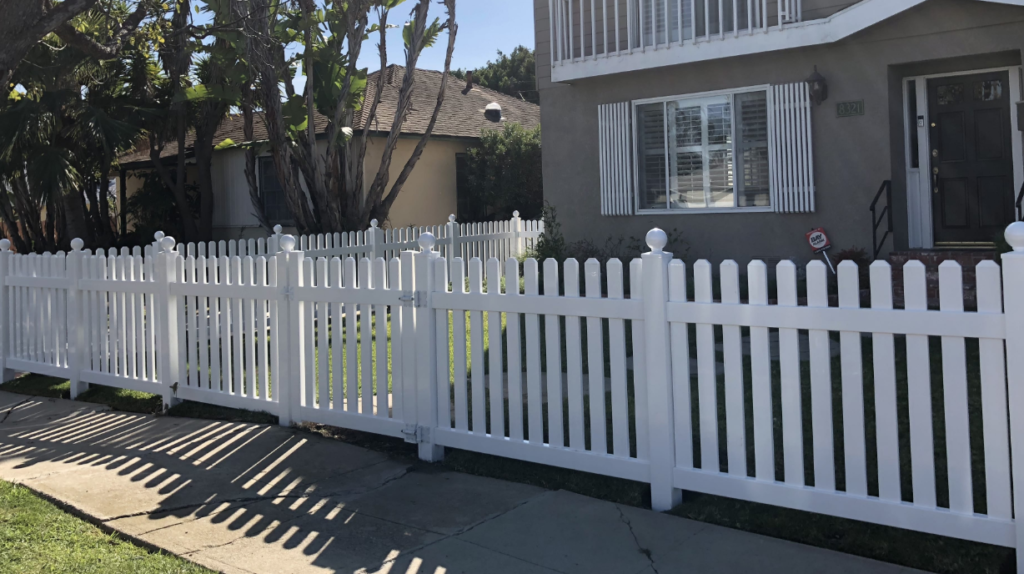Are you planning to install a steadfast vinyl fence around your property and looking for appropriate material? Rate your budget. Fences are an important and integral part of any property. They provide privacy, security, and safety for your daring pets and children. There are many types of fencing materials used nowadays, wood and vinyl are two of the more well-known and common choices. Below, we’ll try to outline 10 ways which approve that vinyl fencing is better than wood.
What is more economical? Wood or vinyl?
Practice shows that installing a vinyl fence or a wooden fence costs about the same amount. But if we are taking into account a one-time cost. In the future, a wooden fence will demand additional investments – repair, restoration, processing with protective compounds, painting. So it’s more profitable from the standpoint of the economy to have a vinyl fencing.
What material is easier to care for? Vinyl or wood?
Vinyl fences are newer but are gaining popularity since they don’t require painting or maintenance, don’t chip or fade in the sun, and are resistant to termites. There are fewer color options and styles available, but there are enough choices available on the market to let you find one that will match your property. It is not necessary to care for the vinyl fence. A special method of staining ensures the preservation of the decorative and protective fencing for several years.
Wood cannot boast of such advantages. It reacts to moisture, UV rays, fungus and mold. To reduce the negative impact, you’d use special impregnation. After installing the structure, additional efforts will have to be made to preserve it: paint and impregnate with antiseptics, replace damaged parts, etc.
Both wood and vinyl fences should ideally be installed by a professional. But vinyl fences are marginally easier to install.

Vinyl is the most durable and has the least amount of regular maintenance. Wood fences require regular staining or sealing. In addition, wood rots and warps, particularly in humid or wet areas. Wood fences may also be subject to sagging or losing shape over time. They are also susceptible to termites and other insects.
Vinyl fences are made of a type of plastic, so they aren’t subject to rotting, peeling, or decaying. They don’t change color over time the way a wood fence will, and the only maintenance is the occasional cleaning that may be needed to free the vinyl fence of dirt. Therefore, a vinyl fence may last for decades longer than a wood fence, without yearly upkeep.
Vinyl fences last longer than wood fences, which means you will need to replace them less frequently.
What are the advantages of vinyl fencing?
- They provide better privacy options;
- Long-lasting;
- Durable;
- Easy to clean and maintain;
- Saves you money over time.
6 reasons to choose vinyl fencing
- Low-maintenance;
- An abundance of styles, textures, and colors;
- Color and fade protection;
- Stronger with more flexibility;
- Affordable and cost-effective;
- Easy to install;
- Vinyl costs more upfront, but maintaining wood makes it pricier over time;
- Vinyl fences are easier to keep clean.